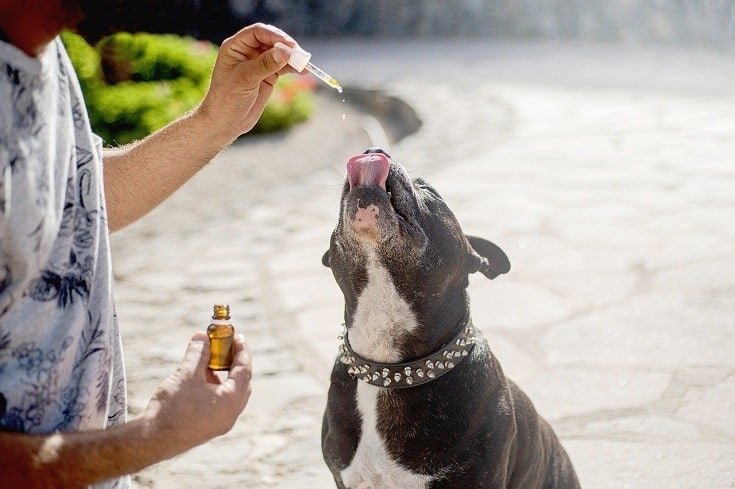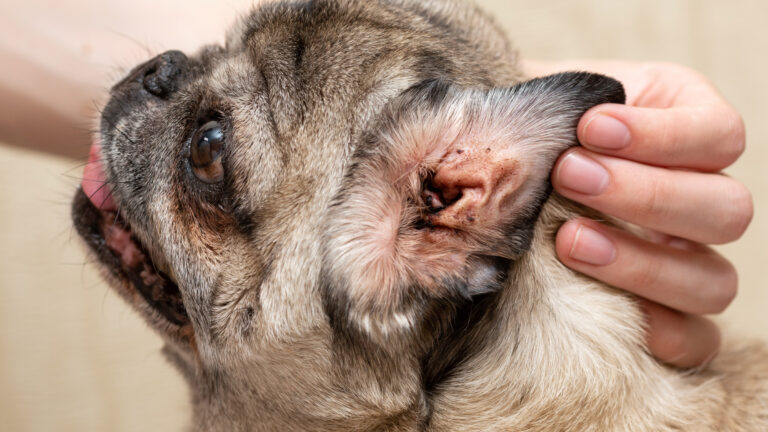Is CBD a Safe Option for Your Dog?
Introduction
As pet owners, we strive to provide the best care for our furry companions. With the growing popularity of CBD (cannabidiol) products for humans, many are curious about its potential benefits for dogs. This article aims to explore the safety of using CBD for dogs, addressing common concerns and providing essential information for informed decision-making.
Understanding CBD and Its Benefits
CBD is a non-psychoactive compound derived from the hemp plant. It has gained recognition for its potential therapeutic properties, including pain relief, anxiety reduction, and anti-inflammatory effects in humans. These properties arise from CBD’s interaction with the endocannabinoid system, a network of receptors that regulate various physiological functions in both humans and dogs.
Quality and Purity Matter
When considering CBD for your dog, quality is paramount. Look for products from reputable companies that provide third-party lab testing to ensure purity and potency. Opt for products specifically formulated for pets, as they are designed with the appropriate dosage and ingredients tailored to canine physiology.
Consulting Your Veterinarian
Before introducing CBD into your dog’s regimen, it is crucial to consult your veterinarian. They can offer personalized advice based on your dog’s specific health needs, potential interactions with existing medications, and any underlying conditions that may affect the suitability of CBD.
Start with Low Dosages
When starting CBD for your dog, begin with a low dosage and observe their response. It’s essential to monitor for any changes in behavior, appetite, or physical condition. Gradually adjust the dosage as needed, under the guidance of your veterinarian, to achieve the desired effects.
Potential Benefits for Dogs
- Pain Management: CBD may provide relief for dogs suffering from chronic pain, arthritis, or discomfort from injuries. It works by interacting with pain receptors and reducing inflammation.
- Anxiety and Stress Relief: Dogs, like humans, can experience anxiety and stress. CBD’s calming effects may help alleviate these symptoms, promoting a sense of relaxation and well-being.
- Seizure Management: Some studies suggest that CBD may be effective in reducing the frequency and severity of seizures in dogs with epilepsy. However, this should be done under the supervision of a veterinarian.
- Anti-Inflammatory Properties: CBD’s anti-inflammatory properties can benefit dogs with conditions like allergies, skin disorders, and autoimmune diseases.
- Improved Quality of Life in Older Dogs: For senior dogs dealing with mobility issues and age-related discomfort, CBD may offer a natural, non-pharmaceutical option for improved quality of life.
Potential Risks and Considerations
While CBD is generally considered safe, there are a few considerations to keep in mind:
- THC Content: Ensure that the CBD product you choose contains minimal or no THC (tetrahydrocannabinol). THC is the psychoactive component of cannabis and can be harmful to dogs.
- Possible Interactions: CBD can potentially interact with certain medications, especially those that affect the liver. It’s crucial to consult your veterinarian if your dog is taking other medications.
- Allergies and Sensitivities: Like any substance, some dogs may have allergies or sensitivities to CBD or other ingredients in the product. Monitor your dog closely for any adverse reactions.
Exploring the Different Forms of CBD for Dogs
CBD for dogs comes in various forms, each with its own advantages and considerations:
- CBD Oil/Tinctures: This is one of the most common forms of CBD for dogs. It allows for precise dosing and can be easily added to your dog’s food or administered directly into their mouth. It’s essential to follow dosing instructions provided by the manufacturer.
- CBD Treats: CBD-infused treats offer a convenient and tasty way to administer CBD to your dog. However, it’s important to verify the quality and CBD content of the treats, as some may have lower concentrations or inconsistent dosages.
- Capsules or Softgels: These provide a measured dosage and can be hidden in your dog’s favorite treat or food. They are a good option for dogs who may be sensitive to the taste of CBD oil.
- Topical CBD: Creams, balms, and salves infused with CBD can be applied directly to the skin. They are particularly useful for targeting localized issues such as skin irritations or joint pain.
- CBD Sprays: These allow for easy and controlled administration. They can be sprayed directly into your dog’s mouth or onto their food.
Monitoring Your Dog’s Response
Once you’ve started your dog on a CBD regimen, it’s important to closely observe their behavior and physical condition. Look for any signs of improvement in areas you’re targeting, whether it’s pain relief, anxiety reduction, or improved mobility. Similarly, be vigilant for any adverse reactions, such as changes in appetite, lethargy, or gastrointestinal issues.
Adjusting Dosages
Based on your observations and in consultation with your veterinarian, you may need to adjust the dosage of CBD. Keep in mind that dosages can vary depending on your dog’s size, weight, and individual response to CBD. It’s advisable to start with a lower dose and gradually increase it until you achieve the desired effects.
Potential Benefits for Specific Conditions
While CBD may offer general benefits, it can be particularly valuable for dogs with specific health conditions:
- Arthritis and Joint Pain: Dogs suffering from arthritis or joint pain may find relief through the anti-inflammatory properties of CBD. It can help improve mobility and reduce discomfort.
- Separation Anxiety: For dogs with separation anxiety, CBD’s calming effects may provide a sense of security and ease their distress when left alone.
- Epilepsy and Seizures: Some studies suggest that CBD may help reduce the frequency and severity of seizures in dogs with epilepsy. However, this should be done under the supervision of a veterinarian.
- Cancer-related Symptoms: While not a cure for cancer, CBD may help alleviate some of the symptoms associated with cancer treatment, such as pain, nausea, and loss of appetite.
Conclusion: Making Informed Decisions for Your Dog’s Well-being
Incorporating CBD into your dog’s wellness routine can potentially enhance their quality of life, but it’s essential to approach it with care and knowledge. By consulting your veterinarian, choosing high-quality products, and closely monitoring your dog’s response, you can make informed decisions about using CBD as a part of your dog’s healthcare regimen. Remember that every dog is unique, and what works for one may not work for another, so patience and attentive observation are key. With the right precautions, CBD can be a safe and beneficial addition to your dog’s holistic health approach







